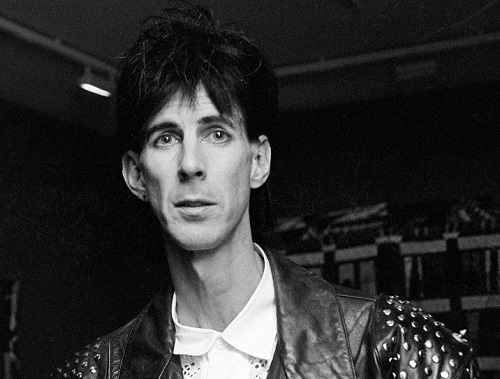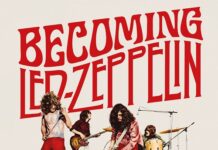By Ira Kantor
He wasn’t sexy or flashy. In fact, he was more praying mantis in look and demeanor. Yet the second Ric Ocasek’s monotonal vocals pronounced the phrase “Let the good times roll; let them knock you a-round,” you knew you were hearing a different kind of musical being. One that didn’t project the archetypal frontman but instead embodied an entirely assured sense of presence and cool.
The man born Richard Otcasek made it seem so effortless yet by the time the Cars drove out of Boston into national airwaves in 1978, Ocasek was 34 and a veteran of a round robin of bands, replete with different styles. Once he aligned with the new wave quintet, however, you simply couldn’t take your eyes off him.
Where bassist Benjamin Orr had the doe-eyed look of a pure rock star with platinum blonde hair and a chin cleft that was pure Travolta, Ocasek looked his exact counterpart — gangly, tall as the Empire State Building and possessing what could arguably be the most distinguished Adam’s apple in rock. Yet even with his jet-black hair, sunglasses, and staccato voice, Ocasek held as much dynamism as Orr, his fellow bandmate in groups like Milkwood and Cap’n Swing.
Where Orr would sing the band’s most synonymous tunes — “Just What I Needed,” “Let’s Go,” “Drive” — it was Ocasek who penned them, while also giving the Cars its fantastic blend of quirkiness and accessibility. He didn’t sing for the powerhouse; the powerhouse backed him up. David Robinson’s steady beats, Elliot Easton’s slashing guitar and Greg Hawkes’ spacey keyboard melodies all fell into place around Ocasek’s stature and ability.
Just listen to Ocasek sing “My Best Friend’s Girl,” “I’m Not the One,” “Shake It Up” and “You’re All I’ve Got Tonight.” There’s a swagger behind each of these and at the same time an insouciance that you can’t help but be enamored by. Ocasek wrote his songs not caring if he came out the victor in his lyrics. In singing and writing directly, he — like his biggest solo hit — is pure emotion in motion.
Even as he hit 40, he helped steer the Cars to near-legendary status thanks to the release of 1984’s Heartbeat City. Containing five Top 40 singles and becoming a darling of MTV, this is also the work that helped earn the group a place at Live Aid and made them one of the more standout acts at JFK Stadium in Philadelphia. While the Cars would ultimately stall in the years ahead, Ocasek also managed to make his mark behind the scenes as a producer for such varied acts as hardcore punk pioneers Bad Brains to alternative mainstays Weezer.
Ocasek’s death at 75 certainly comes as unexpected and sad, especially given it was just a year ago the Cars finally were enshrined in the Rock and Roll Hall of Fame. One can only hope now that he’s caught up with Orr (who died from pancreatic cancer nearly 20 years ago) once again and is, as I write this, in the process of strapping on a guitar to jam.




















